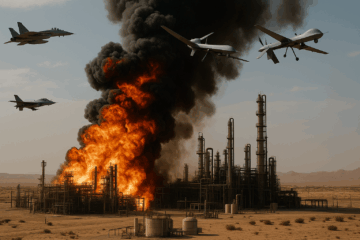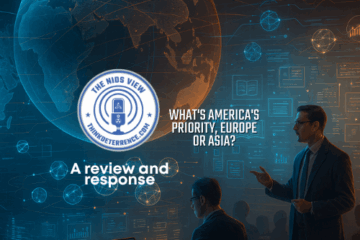The topic of rebuilding a European nuclear deterrent in a world of finite American resources was the topic discussed by Max Hoell in one of Peter Huessy’s recent online seminars. The discussion touched on the evolving challenges to American extended deterrence in Europe amidst growing nuclear capabilities and assertiveness from China, North Korea, Russia, and, potentially, Iran. This is prompting European debate on nuclear deterrence and strategic alignment. While attempting to summarize these complex issues, the article makes a number of recommendations for advancing European deterrence.
European nations’ responses to the Russia challenge remain fragmented. They also show little concern about threats from China and North Korea. This led to a lack of strategic alignment between the US and Europe on the problem of facing the combined threat of China, North Korea, and Russia.
France and Germany prevented the North Atlantic Treaty Organization (NATO) from qualifying China as a threat. France also torpedoed a NATO attempt to open a representative office in Japan. Neither does Europe plan to get involved in a Taiwan conflict. Max Hoell, during his talk, said, “European strategic autonomy thus appears to translate into a quasi-equidistance between Washington and Beijing.” This perspective appears correct.
The European political discourse is replete with concerns that a second Donald Trump presidency will usher in a post-NATO world. Such concerns miss the point. Regardless of who is in the White House in Washington, DC, the views of American presidents evolve as resources become finite. Europe needs to step up to the plate and not only pay their fair share for Europe’s defense, but also understand the need for a division of labor to defend a world threatened by revisionist powers. British and French deterrence face a credibility challenge. If faced with a conflict against China or Russia, Europe’s nuclear arsenals may not deter absent American support.
Realpolitik is to advocate a stronger transatlantic cooperation in extended deterrence. To rely solely on national European deterrence introduces reliability issues, such as the security of one country depending on the presidential power of another. Certain political parties, if victorious in French or German elections, would opt to appease China and Russia—possibly ending NATO and a European nuclear deterrent. Ideally, Europe should increase its contributions to deterrence efforts, including strategic alignment with NATO, increasing defense spending, and expanding European nuclear capabilities within the framework of transatlantic cooperation.
There is a need, though, for political leadership to engage domestic audiences in understanding the importance of nuclear deterrence to garner support for necessary security policies. Educating the public on nuclear realities and strategic imperatives is vital. European nations should continue evaluating their security strategies in light of evolving geopolitical dynamics and disruptive technological advancements. Only modernization can ensure adaptability and effectiveness in deterrence efforts.
Practically speaking, what are the options for a European nuclear deterrent involving France, Germany, and the United Kingdom (UK) that operate in concert with the United States? A joint European nuclear force, unified under joint command and control involving France, Germany, and the UK, could provide a deterrent against threats to European security, but at a level well below that of Russia. Another option, an Anglo-French nuclear umbrella under a bilateral arrangement between the UK and France to cover other European nations, could provide security guarantees and potentially share nuclear assets.
Independently maintaining and enhancing European nuclear capabilities and further developing their own nuclear arsenal and deterrence strategy may be a necessary step. But that would further fragment the approach to European security. Alternatively, Europe could create a European federation where a unified nuclear force is established. Spearheaded by France, Germany, and the UK, it could support a “European Federation Nuclear Force.” This option, which is no less than the Holy Grail of European unity and strategic autonomy, would require significant political integration and coordination among European states. Nationalist tendencies would prove problematic. This not only sounds far-fetched, based on decades of previous attempts, but the contemporary climate of election interference and electoral tactics make it not only a remote prospect, but also a repellant to a majority of voters.
A fiscally sustainable endgame could be an expanded NATO nuclear-sharing agreement, with additional European countries sharing the burden of nuclear responsibilities within the alliance, together with France and the UK. The feasibility and desirability of these options would depend on various factors, including intra-European political will and transatlantic cooperation, while getting the China and Russia strategic picture right. A combination of realist threat perception and American-led deterrence realpolitik can generate the kind of tremendous pressure under which Europe will prove itself to be adaptive and step up to demonstrate its ability to lead and deter.
Christophe Bosquillon has over 30 years of international experience in general management, foreign direct investment, and private equity and fund management across various industries in Europe and the Pacific Basin. Views expressed in this article are the author’s own.
About the Author

Christophe Bosquillon
Christophe Bosquillon is a Senior Fellow at the National Institute for Deterrence Studies. He has over 30 years of international experience in general management, foreign direct investment, and private equity and fund management across various industries in Europe and the Pacific Basin.




